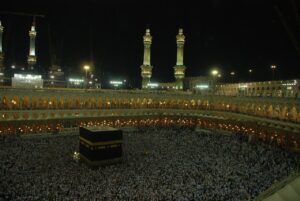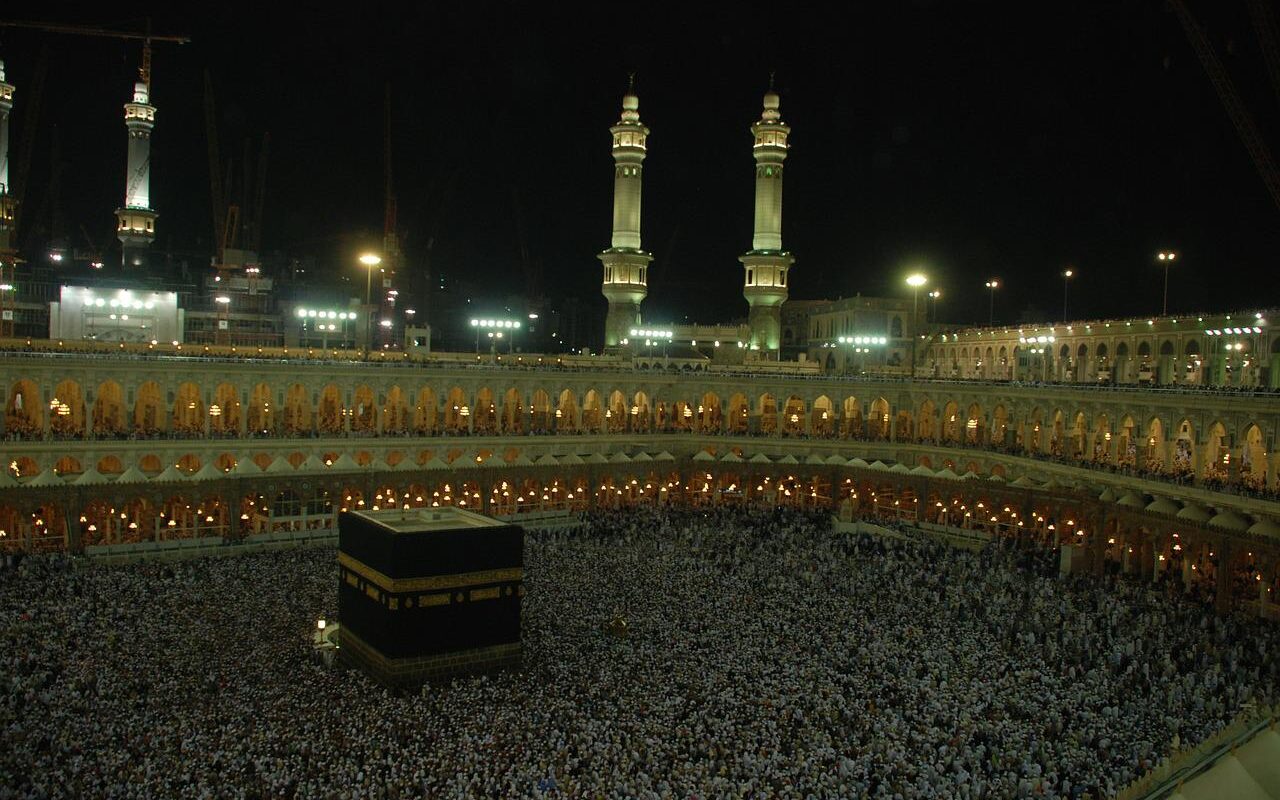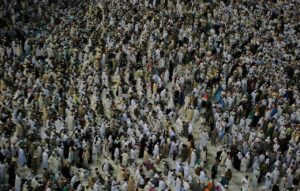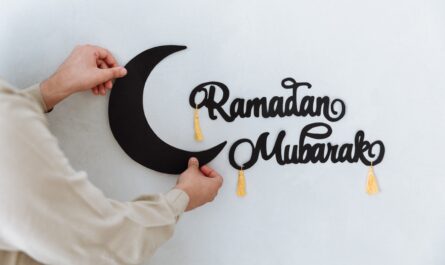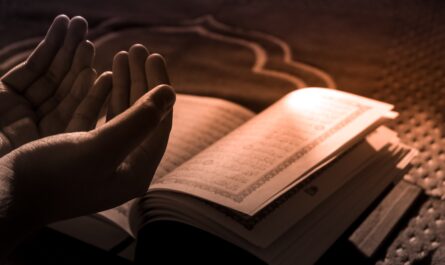Eid al Adha 2022
When is Eid al Adha 2022?
Eid al Adha 2022 or Bakra Eid 2022 is supposed to be commended on Sunday, 1oth of July 2022. This is the speculative date as the actual date depends upon locating the moon of Dhul Hijjah, 1443, the twelfth and last month of the Islamic Schedule.
What is Eid al Adha?
Eid al Adha is a celebration celebrated among Muslims worldwide in recognition of the sacrifice that Prophet Ibrahim (A.S.) made from significant areas of strength for him in Allah.
Ibrahim( AS) displayed an appetite to lose his child Prophet Ismail(A.S.); however, his child was replaced with a lamb by Allah. Allah was so satisfied with Ibrahim’s(A.S.) accommodation to Him that He made this exhibition of sacrifice and confidence a long- continuing piece of a Muslim’s life. This occasion is substantiated in Quran- Surah As- Saffat( 37102).
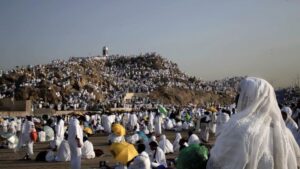
Accordingly, on the tenth of Dhul Hijjah, Muslims worldwide observe Eid al Adha. On this day, Muslims butcher a lamb, lamb, goat, or camel to admire the penance of Ibrahim( AS).
Both Eid ul Fitr and Eid al Adha have extraordinary significance in Islam as the fellow is apparent from the accompanying Hadith of Prophet Mohammad(S.A.W.)
“Allah has given you better than those feasts (festivals of non-believers): the ‘Eid-al-Adha’ and ‘Eid-ul-Fitr.’”
(An-Nasai: 1556)
Fasting on Eid al-Adha and Eid ul-Fitr are strictly forbidden as the same is obvious from the following Hadith of our beloved Prophet (S.A.W.):
“No fasting is permissible on the two days of Eid-ul-Fitr and Eid-al-Adha.”
(Sahih Bukhari: 1995)

First 10 days of Dhul Hijjah
Dhul Hijjah is one of the four holy months of the Islamic Schedule, and the initial ten days of this current month are the days chosen by Allah as the most important days of the year.
(Surah At Taubah 9:36)
(Sahih Bukhari: 3197)
(Surah Al-Fajr 89:1-2)
1-There are numerous Hadiths and Quranic Ayahs which show incredible accentuation on carrying out beneficial things during these favored days. Prophet Mohammad (S.A.W.) said:
“No good deeds done on other days are superior to those done on these (first ten days of Dhul Hijja).’” (Sahih Bukhari: 969)
2-Customs of Hajj are begun during the initial ten days of Dhul Hijjah (from eighth to thirteenth).

3-Fasting upon the arrival of Arafah (ninth Dhul Hijjah) is an affirmed Sunnah of our dearest Prophet Muhammad (S.A.W.). However, just for the people who are not performing Hajj. Fasting on this day is compensated with Allah’s pardoning for the past transgressions and the following year. (Ibn Majah: 1731)
4-Eid al Adha is commended during these ten days (tenth Dhul Hijjah), and creatures are forfeited nowadays (tenth to thirteenth).
5-Days of Tashriq start on the ninth of Dhul Hijjah (ninth to thirteenth), which are extended periods of eating and drinking. During the times of Tashriq, it is fundamental for each Muslim (male or female, whether asking in the assemblage or alone) to say the Takbir (Takbirs of Tashriq) following each required (fard) petition from the Fajr Supplication on the ninth of Dhul Hijjah to the Asr Petition on the thirteenth of Dhul Hijjah. Accordingly, these Takbirs’ most recent five days with 23 petitions to God altogether.
Muslims all over the planet observe Eid al Adha for two to four days (contingent upon the country). Notwithstanding, there are some Sunnah that each Muslim ought to follow while commending this incredible celebration.
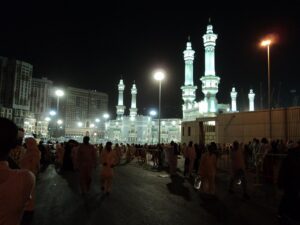
Celebration of Eid al Adha
Muslims all over the planet observe Eid al Adha for two to four days (contingent upon the country). Notwithstanding, there are some Sunnah that each Muslim ought to follow while commending this extraordinary celebration.
Sunnahs of Eid al Adha and Eid Supplication
1-Get up speedily in the initial segment of the day.
2-Clean your teeth with brush or apply miswak
3-Wash up.
4-You should wear new dress on this day
5-Apply fragrance.
6-Do without eating before the Eid request.
7-Present the Takbir of Tashriq in a boisterous voice while going for the Eid request.
اَللهُ أَكْبَرُ ، اَللهُ أَكْبَرُ، اَللهُ أَكْبَرُ، لَا إِلَهَ إِلَّا اللهُ ، وَاللهُ أَكْبَرُ، اَللهُ أَكْبَرُ، وَلِلَّهِ الْحَمْدُ Allahu akbar, Allahu akbar, Allahu akbar laa ilaaha ill-Allah, wa Allahu akbar, Allaah akbar, wa Lillaah il-hamd (Allah is Most Great, Allah is most Great, Allah is most Great there is no god but Allah, Allah is Most great, Allah is most great, and to Allah be praise) (Irwa Al Ghalil: 3 / 125)
8-Pay attention to the Message (Khutba) after offering Eid supplication. (An-Nasai: 1517)
9-Utilize various ways while going to the mosque and returning in the wake of offering Eid Petition. (Sahih Bukhari: 986)
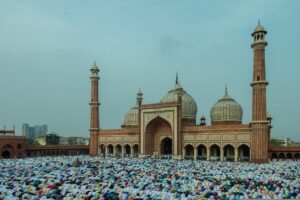
Eid Prayer
The researchers varied concerning the decision on Eid petitions. Nonetheless, all Muslims ought to go to the requests of both Eids as most researchers, based on areas of strength for one, is of assessment that it is Wajib (commitment).
Aside from the petition, the Eid message (after Eid Supplication) has additionally been made an indispensable piece of this social event and the request.
1, the ideal opportunity for Eid prayers, Allah starts from the time the sun is three meters over the skyline until the sun arrives at its meridian. In any case, offering the request in the early hours after sunrise is better. (Abu Dawud: 1135)
2-Eid Petitioning heaven is performed with no ‘Iqmah’ or ‘Athan.’ [Sahih Muslim: 885 (b)]
3-Eid petitioning heaven comprises two Rak’at (Two Unit Supplication), during which Tabkeer (Allah-u-Akbar) is declared multiple times. (Abu Dawud: 1149)
4-The remainder of the Eid prayers, Allah is equivalent to different petitions to heaven offered day to day.
5-In the wake of finishing the request, it is Sunnah (a few researchers say that it is Wajib) to pay attention to the Lesson (Khutbah) after Eid Supplication. So one ought to remain for the Imam’s lesson to end after finishing the Eid Petition.

In the wake of standing by listening to the message, Muslims complement each other with good tidings, for example, ‘Eid Mubarak,’ ‘Cheerful Eid, and عيد مبارك and so on. Notwithstanding the most well-known Eid, Hello Muslims like to wish their companions and individual Muslims with ‘Eid Mubarak.’
The sacrifice of an animal or Qurbani upon the arrival of Eid al Adha is an affirmed Sunnah of Prophet Ibrahim (A.S.) yet additionally of our dearest Prophet Mohammad (S.A.W.).
“Whoever can afford it [sacrifice], but does not offer a sacrifice, let him not come near our prayer place.” (Ibn Majah: 3123)

In any case, a few researchers are of the assessment that it is ‘Wajib’ (compulsory).
Sacrifice cattle in the method of Allah is an extraordinary demonstration of love. It brings the individual contribution the penance near Allah.
The Hadith refers to the significance of forfeiting in the method of Allah. It likewise incorporates a caution for those Muslims who possess the ability to offer a penance on Eid al Adha. However, they don’t do as such because of some common explanation or weak reason.
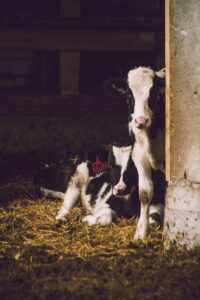
Rules Of Sacrifice
Any individual who plans to butcher a animal on Eid Eid al Adha needs to observe specific guidelines, which are given beneath:
1-sacrifice of animals for Eid al Adha must be finished during the predefined dates I-e After Eid Supplication (the tenth of Dhul Hijjah) and before dusk of thirteenth Dhul Hijjah.
Whoever doesn’t follow these dates should realize that their penance won’t be substantial on the off chance it isn’t presented between the tenth and thirteenth Dhul Hijjah.
(Sahih Bukhari: 5545 and Sahih Muslim: 1141)
2-Theanimal of sacrificed should be one of the steers supported by the Shariah, which are; Camels, Dairy cows, Sheep, and Goat.
(Surah Hajj 22:34 and Surah Al-Anaam 6:143)
3-A sheep or goat is utilized as a solitary contribution and is adequate for one family through seven individuals who can share a camel or a cow.
[Sahih Muslim: 1318(a) and 1961(a)]

4-The animal sacrificed must be a grown-up and ought to have arrived at the age specified in Shariah.
• Goat, male or female, of something like one-year-old.
• Sheep, male or female, of something like a half-year-old.
• Cow, bull, bison of something like two years old.
• Camel, male or female, of something like five years old.
5-The animal should be a sound one and ought to be liberated from evident imperfections. (Saheeh Al-Jami: 886)
6-The individual contribution ought to have one goal I-e sacrifice for the sake of Allah. The animal to be sacrificed should be in the individual’s complete belonging (it isn’t taken or taken forcibly, in a joint parade, or held in vow).
7-The individual who means to offer sacrifice shouldn’t cut or remove any hair, nail, or skin from the sunset on the last day of Eid al Adha until the sacrifice is finished upon the arrival of Eid. (Ibn Majah: 3150)
8-The person slaughters the animal with his own hands to satisfy the Sunnah. If one can’t do so, he can select another person to do likewise for his sake; however, one ought to observe his slaughter. (Sahih Bukhari: 5554)
9-The person to refer to the name of Allah and present Takbeer (Bismillah, Allahu Akbar) at the hour of butchering the creature. (Sahih Bukhari: 5558)
10-Numerous researchers are of the assessment that the sacrificed animal’s meat should be partitioned into three sections. 33% for the individual (and his family) offering the sacrifice, 33% ought to be disseminated among the family members/neighbors as a gift, and 33% ought to be given in cause to needy individuals.
11- can utilize all pieces of the sacrificed animal for individual advantage, yet none can be sold or given as installment (even to the butcher as his pay) any other way. The sacrifice will become invalid. (Sahih Al-Jami: 6118)
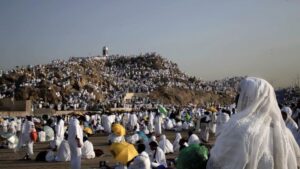
Conclusion
Partake in this celebration by saying thanks to Allah for His favors and giving you the chance to satisfy this extraordinary Sunnah of Prophet Ibrahim (A.S). However, remember your under-advantaged individual Muslim sibling and sisters who don’t possess the ability to praise this favored celebration.
